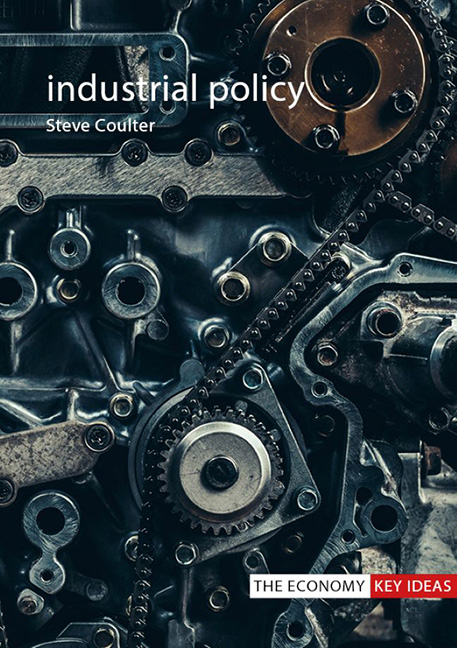Book contents
- Frontmatter
- Contents
- Preface and acknowledgements
- 1 Introduction: industry, economy andindustrial policy
- 2 States, markets and growth: the economics of industrial policy
- 3 Implementing industrial policy: the experiences of five countries
- 4 New horizons for industrial policy
- 5 Conclusion
- Further reading
- References
- Index
2 - States, markets and growth: the economics of industrial policy
Published online by Cambridge University Press: 20 January 2024
- Frontmatter
- Contents
- Preface and acknowledgements
- 1 Introduction: industry, economy andindustrial policy
- 2 States, markets and growth: the economics of industrial policy
- 3 Implementing industrial policy: the experiences of five countries
- 4 New horizons for industrial policy
- 5 Conclusion
- Further reading
- References
- Index
Summary
This chapter examines industrial policy in the light of economic theory and unpacks some of the assumptions about the operation of modern economies that underly its use. Even though many of its theoretical precepts are largely accepted, industrial policy lacks a dedicated set of economic theories to explain it. Economists interested in the topic have tended to participate in debates about government intervention in the economy on an ad hoc basis, and there is no “school” of industrial policy in economics as such. Nevertheless, a number of distinct theoretical positions have emerged, which are explored in more detail here. These mirror how neoclassical assumptions about perfect and imperfect competition have been supplemented over the last 40 years with more holistic explanations of the workings of economies that emphasize their underlying capabilities and the dynamics of structural change.
The chapter is divided into two main parts. The first part examines two related controversies surrounding industrial policy which have been a feature of economic thought since Adam Smith’s day. The first of these concerns the relationship between the government and the market and, specifically, whether policymakers should intervene in markets or leave them to their own devices. Having concluded that intervention is justifiable in principle, the second section examines the nature of economic growth itself and the extent to which intervention via industrial and other policies is practical or desirable.
The second part of the chapter is more granular and divides theoretical approaches to industrial policy into three broad families, which are examined in turn. The first of these is the concept of market failure grounded in neoclassical economics, which provides a broad rationale for intervention in the economy to correct specific wrinkles in the operation of markets. The second family is one that advances the market failure framework to suggest that these failures can take the form of coordination problems which inhibit whole groups of firms from entering into new markets. The third takes a more structural view of economies and deals with attempts to alter their development path by intervening in the underlying drivers of growth and the composition of industrial bases.
- Type
- Chapter
- Information
- Industrial Policy , pp. 15 - 44Publisher: Agenda PublishingPrint publication year: 2023

